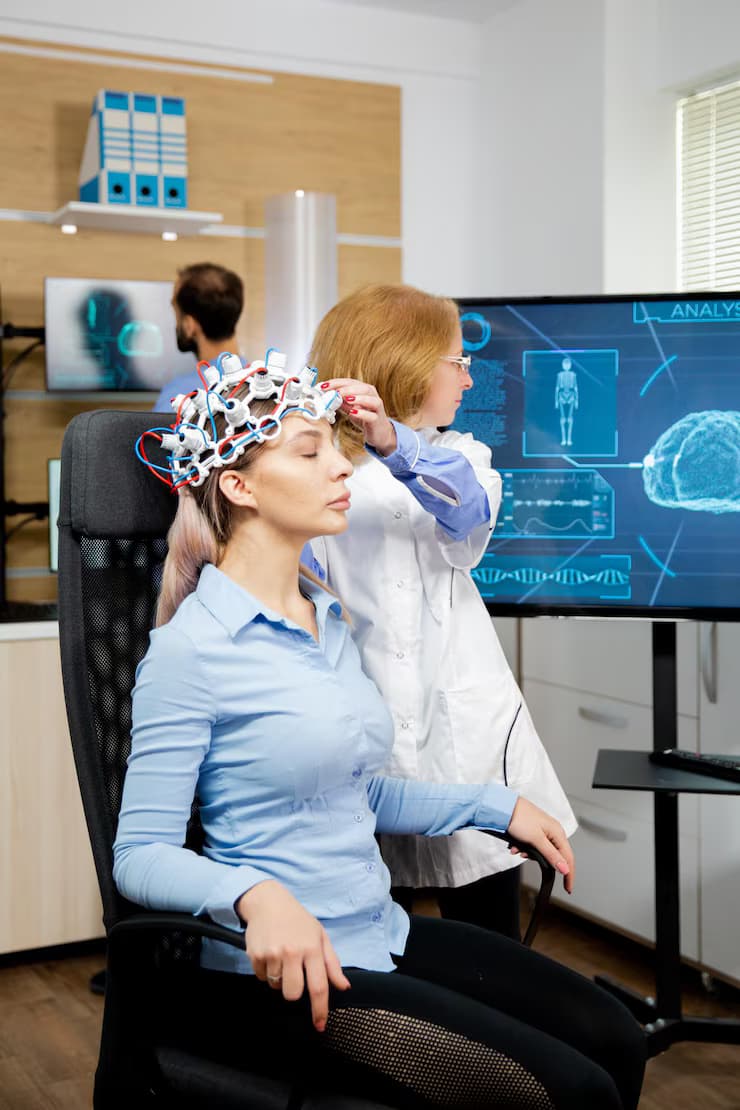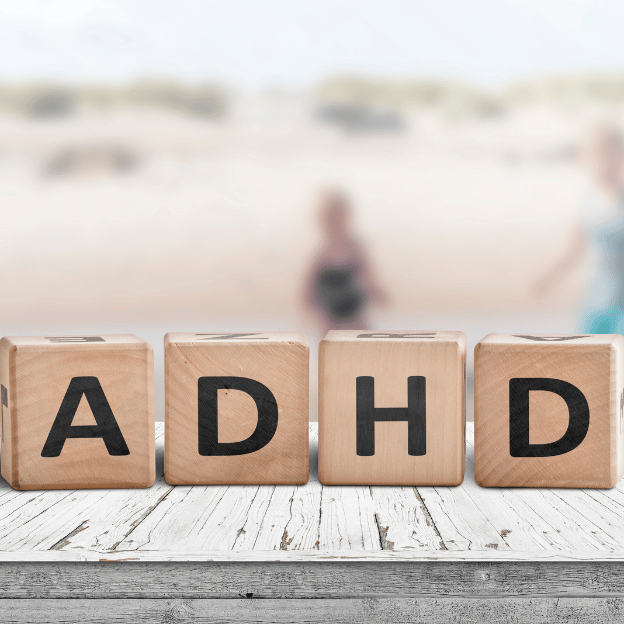Why TMS Treatment for Depression in Albany Is Gaining Attention

Strong 8k brings an ultra-HD IPTV experience to your living room and your pocket.
Depression is a pervasive and debilitating mental health condition that affects millions worldwide. It's characterized by persistent feelings of sadness, loss of interest in activities, and a range of physical and cognitive symptoms. While traditional treatments like medication and psychotherapy are effective for many, a significant portion of individuals with depression experience limited or no relief from these approaches. This has led to a growing interest in alternative and innovative therapies, and one such treatment that's gaining significant attention in Albany and beyond is Transcranial Magnetic Stimulation (TMS).
Understanding Depression and Its Challenges
Before delving into the specifics of TMS, it's crucial to understand the complexities of depression. Depression isn't simply a matter of feeling "down" or "blue." It's a complex illness that can disrupt a person's ability to function in daily life. The symptoms of depression can vary widely from person to person, but common signs include:
Persistent sadness, emptiness, or hopelessness
Loss of interest or pleasure in activities
Changes in appetite or weight
Sleep disturbances (insomnia or excessive sleeping)
Fatigue or loss of energy
Feelings of worthlessness or guilt
Difficulty concentrating, remembering, or making decisions
Restlessness or slowed movements
Thoughts of death or suicide
The underlying causes of depression are multifaceted and can involve a combination of genetic, biological, environmental, and psychological factors. Neurotransmitters, such as serotonin, norepinephrine, and dopamine, play a critical role in regulating mood, and imbalances in these chemicals are often implicated in depression.
Traditional treatments for depression typically involve a combination of medication and psychotherapy. Antidepressant medications work by modulating the levels of neurotransmitters in the brain. Psychotherapy, such as cognitive-behavioral therapy (CBT) or interpersonal therapy (IPT), helps individuals identify and change negative thought patterns and behaviors that contribute to their depression.
While these treatments can be effective, they aren't a panacea. Many individuals with depression don't respond adequately to medication or experience intolerable side effects. Others may find psychotherapy challenging or time-consuming. For these individuals, alternative treatments like TMS may offer a viable option.
What is TMS?
Transcranial Magnetic Stimulation (TMS) is a non-invasive brain stimulation technique that uses magnetic pulses to stimulate nerve cells in the brain. It's based on the principle that depression is often associated with reduced activity in certain areas of the brain, particularly the prefrontal cortex, which plays a crucial role in regulating mood and emotions.
During a TMS session, a magnetic coil is placed on the scalp near the prefrontal cortex. The coil generates brief magnetic pulses that pass painlessly through the skull and induce electrical currents in the underlying brain tissue. These electrical currents stimulate the nerve cells, which can help to improve mood and alleviate depressive symptoms.
TMS is typically administered in a series of sessions over several weeks. A typical course of treatment involves daily sessions, five days a week, for four to six weeks. Each session lasts about 30-60 minutes.
How TMS Works
The exact mechanisms by which TMS works are still being investigated, but several theories have been proposed. One theory is that TMS helps to restore normal activity in the prefrontal cortex by increasing the release of neurotransmitters like serotonin and dopamine. Another theory is that TMS promotes neuroplasticity, which is the brain's ability to reorganize itself by forming new neural connections. This can help to strengthen the connections between different brain regions and improve overall brain function.
Regardless of the specific mechanisms involved, TMS has been shown to be effective in treating depression. Clinical trials have demonstrated that TMS can significantly reduce depressive symptoms in individuals who haven't responded to other treatments.
Why TMS is Gaining Attention in Albany
The growing interest in TMS treatment depression albany is driven by several factors:
Effectiveness: TMS has been shown to be effective in treating depression, particularly in individuals who haven't responded to medication or psychotherapy. Studies have consistently demonstrated that TMS can significantly reduce depressive symptoms and improve quality of life.
Non-Invasive Nature: TMS is a non-invasive procedure, meaning that it doesn't involve surgery or the implantation of any devices. This makes it a more appealing option for individuals who are wary of more invasive treatments.
Minimal Side Effects: TMS is generally well-tolerated, with minimal side effects. The most common side effect is a mild headache, which usually resolves quickly. Other potential side effects include scalp discomfort, tingling, or muscle twitching. Serious side effects are rare.
Targeted Treatment: TMS is a targeted treatment that focuses on specific areas of the brain that are involved in regulating mood. This allows for a more precise and effective approach to treatment.
Growing Awareness: As more research is conducted on TMS and its effectiveness becomes more widely known, more people are becoming aware of this treatment option. This is leading to increased demand for TMS services.
Accessibility: TMS treatment depression albany is becoming more accessible as more clinics and hospitals offer this service. This makes it easier for individuals in the Albany area to access TMS treatment.
Benefits of TMS Treatment
TMS offers a number of potential benefits for individuals with depression:
Reduced Depressive Symptoms: TMS can significantly reduce depressive symptoms, such as sadness, loss of interest, and fatigue.
Improved Mood: TMS can help to improve mood and increase feelings of well-being.
Increased Energy: TMS can help to increase energy levels and reduce fatigue.
Improved Concentration: TMS can help to improve concentration and focus.
Better Sleep: TMS can help to improve sleep quality.
Reduced Anxiety: TMS can help to reduce anxiety symptoms, which often co-occur with depression.
Improved Quality of Life: TMS can help to improve overall quality of life by reducing depressive symptoms and improving mood and function.
Who is a Good Candidate for TMS?
TMS is typically considered for individuals who:
Have been diagnosed with depression
Haven't responded adequately to medication or psychotherapy
Are experiencing intolerable side effects from medication
Are seeking a non-invasive treatment option
It's important to note that TMS isn't appropriate for everyone. Individuals with certain medical conditions, such as epilepsy or a history of seizures, may not be good candidates for TMS. It's also important to discuss any potential risks and benefits of TMS with a qualified healthcare professional.
Conclusion
TMS is an innovative and effective treatment for depression that's gaining significant attention in Albany and beyond. Its non-invasive nature, minimal side effects, and targeted approach make it an appealing option for individuals who haven't responded to traditional treatments. As awareness of TMS continues to grow, it's likely that more people will seek out this treatment option to alleviate their depressive symptoms and improve their quality of life.
If you're struggling with depression and traditional treatments haven't provided relief, TMS might be the right choice for you. Contact Pinnacle Behavioral Health today to learn more about how TMS can help you reclaim your life and find lasting relief from depression. Take the first step towards a brighter future – schedule a consultation now!
Note: IndiBlogHub features both user-submitted and editorial content. We do not verify third-party contributions. Read our Disclaimer and Privacy Policyfor details.







